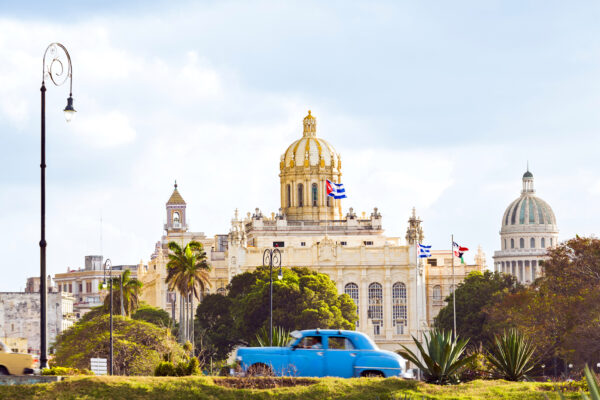
The appointment of a new president in Cuba, Miguel Díaz-Canel, sixty years after the island’s socialist revolution, feels like a turning point.
Once anointed by the 605-strong National Assembly as Cuba’s first non-Castro president in decades, Díaz-Canel vowed to modernize the economy and make government more responsive to its people.
What does the change mean in practice?
Not having a Castro, neither Fidel (1976-08) nor Raúl (2008-18), as leader carries with it great symbolism for sure. For the first time in many years, the powerful roles of president and head of the Communist Party are no longer combined. (Raúl remains party leader for three years.) But the Castro years weren’t quite as monolithic as they are sometimes portrayed and the next few years are unlikely to see a turnaround.
Shifts in emphasis
It is often forgotten that while Fidel Castro led the overthrow of the American-backed dictator Fulgencio Batista in 1959, he only assumed the presidency from Osvaldo Dorticós Torrado in 1976.
Raúl Castro, the outgoing president — once dismissed by George W. Bush as “Fidel-lite” — was a driving force for reform long before his decade in power and his influence will be felt for many more years. The executive branch of the government was strengthened under his watch while a younger crop of cabinet appointees were selected more based on merit than ideology.
In the last decade, Raúl tried to balance the party’s role as the basis for political accountability against greater executive freedom. Díaz-Canel, having to wait three years before becoming Cuba’s supreme leader, may feel more constrained.
Underwhelming
The focus in Cuba has long been on economic reform. The global financial crisis made clear its twentieth-century socialist model was unsustainable. Long dependent on imports, Venezuelan oil in particular, Cuba made a push toward self-sufficiency in agriculture and improving and diversifying its international financial relations to attract foreign investment.
The result has been underwhelming.
GPD growth has averaged a modest 2.5 percent in the last decade — not enough to rebuild infrastructure and protect cherished social provisions from cuts. Free education and health care are becoming more difficult to maintain with an aging population and low productivity growth. Exports are negligible.
Some one million jobs have been lost in the public sector and a burgeoning private sector is struggling to make up the difference. There has been a 10-percent increase in unemployment and informal work, which contributes to a diminished tax intake. Remittances from abroad and tourism have distorted the picture further.
Inequality, the scourge of Cuban socialism, is growing — and so, with increased Internet freedom, is dissent.
Earning authority
In Cuba’s bureaucratic and haphazard system, change must be negotiated. The Castro name, and indeed the entire revolutionary generation, carried with it a certain cachet. Díaz-Canel, born in 1960, will have to prove himself. But his hands are tied. With the American embargo firmly back in place under Donald Trump after the thaw under Barack Obama, there is little scope for an economic resurgence and thus little incentive for political change.
In the short term, the government is undertaking the complicated process of unifying Cuba’s dual currency system. The Cuban peso is worth both 1 to the dollar and 24 to the dollar, which leaves an enormous gap between those paid in local and dollar-convertible currencies. If poorly managed, this could cause inflation, hitting the purchasing power of the poor, who are the government’s biggest supporters.
Longer term, Díaz-Canel needs to restore economic relations with the rest of the world. The EU is not going along with Trump’s embargo. There is demand for Cuban doctors as far away as the Persian Gulf and Vietnam.
Constitutional reform is on the table. Changes could include age and term limits for politicians as well as legal protections for LGBTs.
Last but not least, the role of the private sector needs to be defined. Restrictions on private consumption have been lifted. Emigrants can now retain their citizenship and property so long as they visit the island every two years. A growing share of goods and services are provided by the private- rather than the public sector.
Without the implicit authority of his predecessors and an unsettled population, Díaz-Canel has limited scope for error and will have to act with tact to make his mark.
